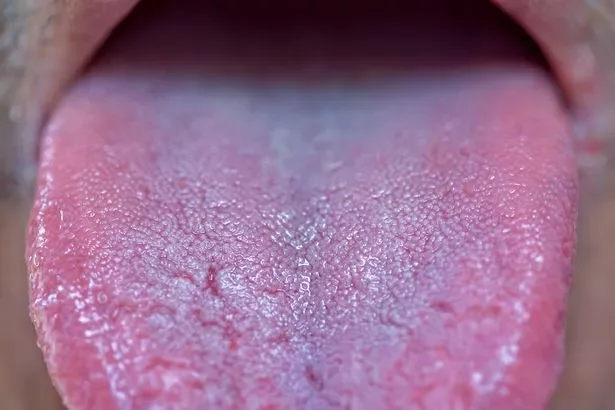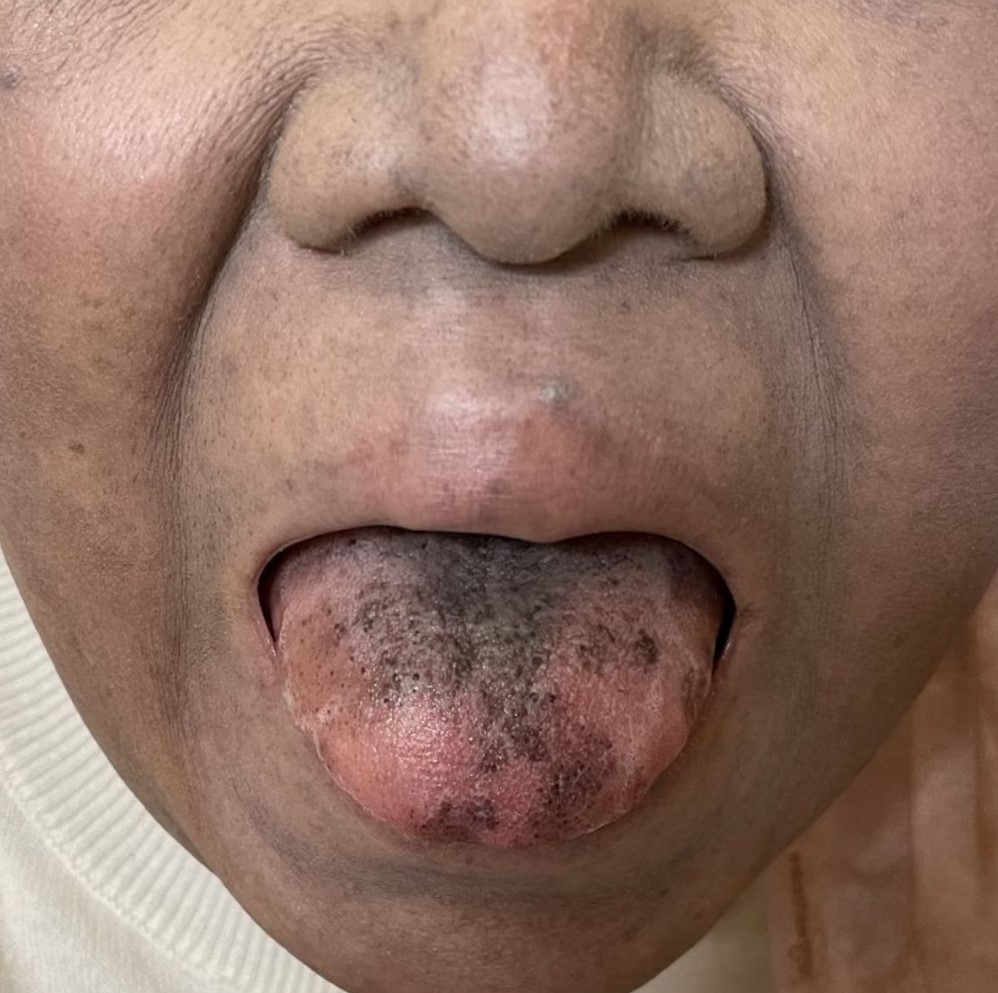Taking photographs of patients’ tongues allowed scientists to pinpoint conditions in 50 people with
and anaemia. Images were analysed by a computer which detected health conditions based on the colour, shape and texture of their tongue. Prof Ali Al-Naji from the University of South
, said: “Conventional medicine has long endorsed this method, demonstrating that the colour, shape, and thickness of the tongue can reveal signs of diabetes, liver issues, circulatory and digestive problems, as well as blood and heart diseases.”

The tongue can be huge indicator of being at risk of a serious health condition
Changes in the shape, colour and texture your tongue are usually harmless, but some may require treatment by a professional.
People with a tongue which has a yellowy colour to it could be at risk of diabetes. Healthline says those with high levels of sugar in saliva are likely to have bacteria growth on the tongue. Five million in the UK are believed either type 1 or type 2
. There are a further 4.3million who have been diagnosed, but 850,000 do not know they have it.
The body loses the ability to metabolise sugar in type 2 and a person’s weight can also cause this. Feeling extremely thirsty and needing to pee more often are also signs as is tiredness, genital itching and blurred vision. Those with type 2 diabetes often don’t realise they have it as early symptoms are general or do not show. READ FULL STORY HERE>>>CLICK HERE TO CONTINUE READING>>>
A yellow tongue is also an indicator of liver or gallbladder problems and is more visible when the person becomes jaundiced which n causes the skin and eye whites to turn yellow this caused by liver damaged when the organ can’t properly deal with waste product bilirubin. The
, led by Dr Tianhui Yuan from the Hospital of Guangzhou University of Chinese Medicine, found those with chronic heart failure had “totally different” tongues compared with those who do not have the condition. A redder tongue with a yellow coating is prominent in heart failure patients and changes as the disease sets in.
The Oral Cancer Foundation found tongue cancers will result in dark red or purple colour on mouth surfaces which may bleed and not disappear. The 2022 study suggests mouth cancer in the UK is rising. The illness has doubled in a generation and 8,864 cases were diagnosed in 2022. In the UK around 3,034 people in the UK died of mouth cancer last year. This a rise of 20% in five years. Constant sore throats pain, painful swallowing and a burning feeling on the tongue are other indicators of the condition.

The colour of a patient’s tongue can be an indicator of a more worrying condition
A red tongue could indicate Covid-19. A study in 2022 took tongue images of 135 Covid patient and found 64% with a mild infection had a pale pink tongue, 62% of moderate cases had a red tongue, and 99% of severe cases had a dark red tongue.
Warnings of a stroke and were also found in a Taiwanese study where patients had a crooked tongue The research
found patients had “tongue deviation” during or after a stroke. But not all those with a crooked tongue have had a stroke. indicators include sudden numbness or weakness on one side of the body, trouble speaking, confusion and dizziness.
Patients who have a puffy tongue, meanwhile, could experts say indicate inflammation known as glossitis. A swollen tongue be caused by an allergic reaction, a dry mouth or anaemia. An estimated 3% of men and 8% of women in the UK are anaemic.




















